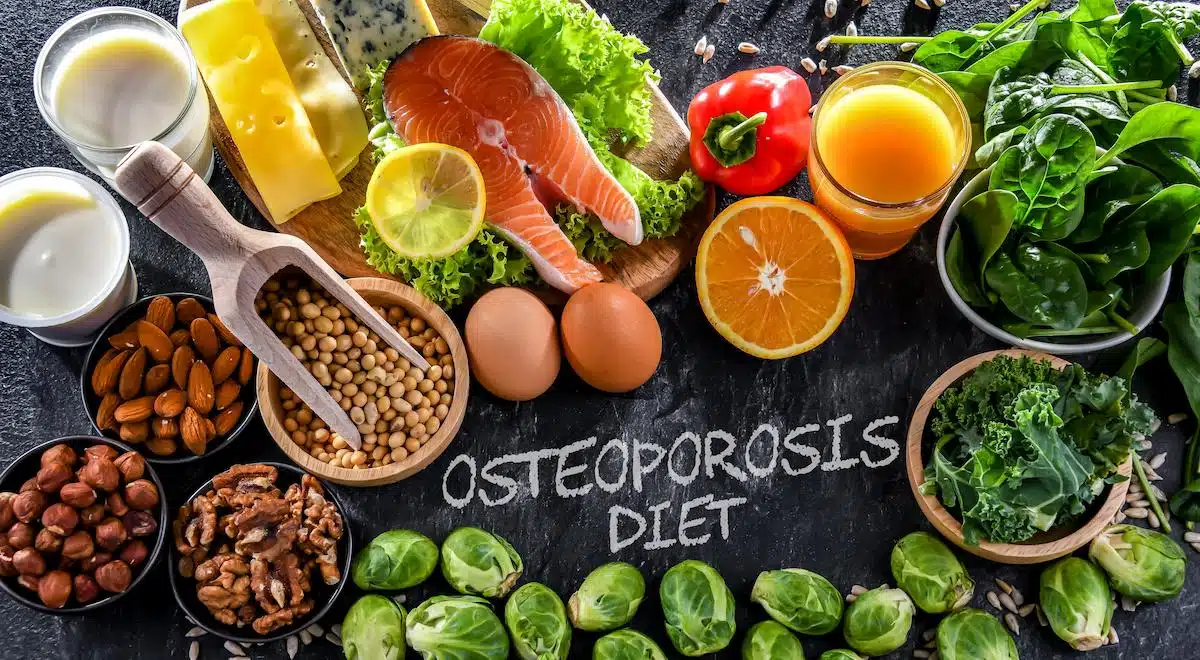A well-balanced and nutrient-rich diet is instrumental in maintaining strong and healthy bones throughout life. As the foundation of our skeletal system, bones require a variety of nutrients to support growth, density, and overall resilience.
In this article, we explore the essential components of a bone-friendly diet, offering practical tips and insights to help individuals make informed choices for optimal bone health.
Calcium-Rich Foods
Calcium is a cornerstone for bone health, providing the building blocks for bone structure. Incorporate dairy products such as milk, yogurt, and cheese into your diet.
Non-dairy sources include leafy green vegetables (kale, broccoli), fortified plant-based milk, and certain fish (such as salmon and sardines).
Vitamin D Sources
Vitamin D is crucial for calcium absorption and bone mineralization. Sunlight is a natural source, but dietary options include fatty fish (like tuna and mackerel), egg yolks, and fortified foods.
Consider vitamin D supplements if sunlight exposure is limited, especially in regions with reduced sunlight during certain seasons.
Protein for Bone Structure
Protein is essential for bone formation and repair. Include lean sources of protein such as poultry, fish, beans, lentils, and tofu in your diet.
Balancing protein intake with other essential nutrients ensures a holistic approach to bone health.
Magnesium and Phosphorus-Rich Foods
Magnesium and phosphorus work in tandem with calcium for bone health. Incorporate nuts, seeds, whole grains, and legumes to boost magnesium intake. Fish, poultry, dairy, and nuts are good sources of phosphorus.
Vitamin K-Rich Foods
Vitamin K plays a role in bone mineralization and helps regulate calcium within the bones. Leafy green vegetables, such as kale, spinach, and Brussels sprouts, are excellent sources of vitamin K.
Fruits and Vegetables
A diet rich in fruits and vegetables provides a spectrum of vitamins and minerals that contribute to overall bone health.
These foods also contain antioxidants that help reduce inflammation, supporting bone density.
Limiting Salt and Caffeine
High sodium intake can lead to calcium loss through urine. Minimize processed foods and opt for fresh, whole foods to keep salt intake in check.
While moderate caffeine consumption is generally acceptable, excessive amounts may interfere with calcium absorption, so it’s wise to moderate coffee and tea intake.
Hydration
Staying well-hydrated is vital for overall health, and it also benefits bone health. Water is essential for the efficient transportation of nutrients, including those crucial for bone metabolism.
Conclusion
A diet tailored to support strong and healthy bones encompasses a diverse range of nutrient-rich foods.
By incorporating calcium, vitamin D, protein, magnesium, phosphorus, and vitamin K through a well-balanced and varied diet, individuals can lay the groundwork for optimal bone health.
Pairing a nutrient-rich diet with an active lifestyle and other positive habits creates a holistic approach to nurturing the strength and resilience of your skeletal system throughout life.

Leave feedback about this